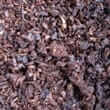Background
- Bees create propolis, a natural resin, to build their hives. Propolis is made from the buds of conifer and poplar trees, beeswax, and other bee secretions. Historically, propolis was used in Greece to treat abscesses. The Assyrians also used propolis to heal wounds and tumors, while the Egyptians used it for mummification. Today, propolis is commonly found in chewing gum, cosmetics, creams, lozenges, and skin creams. It is frequently used in foods and beverages with the claim that it can maintain or improve health.
- Propolis has shown promise in dentistry for dental caries and as a natural sealant and enamel hardener. The effectiveness of propolis against herpes simplex virus types 1 and 2 and parasitic infections has been demonstrated in early studies. However, well-designed studies are lacking, and further evidence is warranted in order to determine if propolis is effective for any health condition.
- Numerous case reports have demonstrated propolis to be a potent allergen and sensitizing agent. Therefore, it should be used cautiously in allergic people. Toxicity with propolis is rare, although there are multiple case reports of skin irritation and itching, as well as blood vessel inflammation.
References
- Black RJ. Vulval eczema associated with propolis sensitization from topical therapies treated successfully with pimecrolimus cream. Clin Exp Dermatol 2005;30(1):91-92.
View Abstract - Borrelli F, Maffia P, Pinto L, et al. Phytochemical compounds involved in the anti-inflammatory effect of propolis extract. Fitoterapia 2002;73 Suppl 1:S53-S63.
View Abstract - Boyanova L, Derejian S, Koumanova R, et al. Inhibition of Helicobacter pylori growth in vitro by Bulgarian propolis: preliminary report. J Med Microbiol 2003;52(Pt 5):417-419.
View Abstract - Cardile V, Panico A, Gentile B, et al. Effect of propolis on human cartilage and chondrocytes. Life Sci 2003;Jul 11, 73(8):1027-1035.
View Abstract - Carr RR, Nahata MC. Complementary and alternative medicine for upper-respiratory-tract infection in children. Am J Health Syst Pharm 2006 Jan 1;63(1):33-9.
View Abstract - Coelho LG, Bastos EM, Resende CC, et al. Brazilian green propolis on Helicobacter pylori infection. a pilot clinical study. Helicobacter 2007 Oct;12(5):572-4.
View Abstract - Cohen HA, Varsano I, Kahan E, et al. Effectiveness of an herbal preparation containing echinacea, propolis, and vitamin C in preventing respiratory tract infections in children: a randomized, double-blind, placebo-controlled, multicenter study. Arch Pediatr Adolesc Med 2004;158(3):217-221.
View Abstract - Eley BM. Antibacterial agents in the control of supragingival plaque--a review. Br Dent J 1999;186(6):286-296.
View Abstract - Gebaraa EC, Pustiglioni AN, de Lima LA, et al. Propolis extract as an adjuvant to periodontal treatment. Oral Health Prev Dent 2003;1(1):29-35.
View Abstract - Giusti F, Miglietta R, Pepe P, et al. Sensitization to propolis in 1255 children undergoing patch testing. Contact Dermatitis 2004;51(5-6):255-258.
View Abstract - Gregory SR, Piccolo N, Piccolo MT, et al. Comparison of propolis skin cream to silver sulfadiazine: a naturopathic alternative to antibiotics in treatment of minor burns. J Altern Complement Med 2002;Feb, 8(1):77-83.
View Abstract - Murata K, Yatsunami K, Fukuda E, et al. Antihyperglycemic effects of propolis mixed with mulberry leaf extract on patients with type 2 diabetes. Altern Ther Health Med 2004;10(3):78-79.
View Abstract - Samet N, Laurent C, Susarla SM, et al. The effect of bee propolis on recurrent aphthous stomatitis: a pilot study. Clin Oral Investig 2007 Jun;11(2):143-7.
View Abstract - Santos VR, Pimenta FJ, Aguiar MC, et al. Oral candidiasis treatment with Brazilian ethanol propolis extract. Phytother Res 2005 Jul;19(7):652-4.
View Abstract - Vynograd N, Vynograd I, Sosnowski Z. A comparative multi-centre study of the efficacy of propolis, acyclovir and placebo in the treatment of genital herpes (HSV). Phytomedicine 2000;7(1):1-6.
View Abstract







